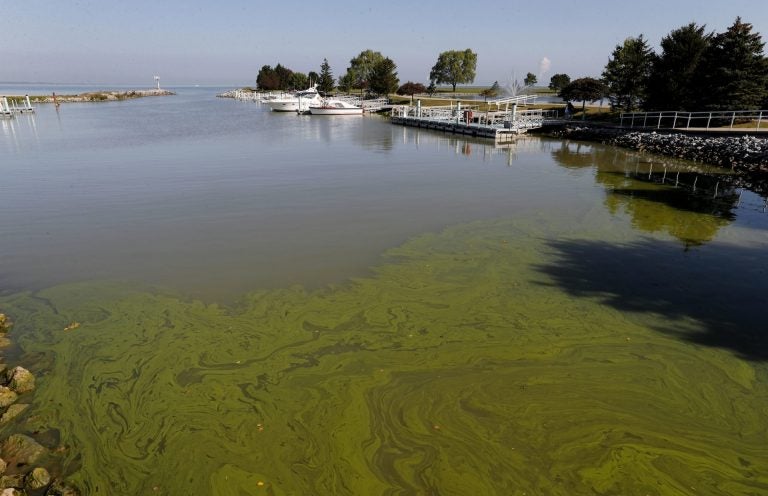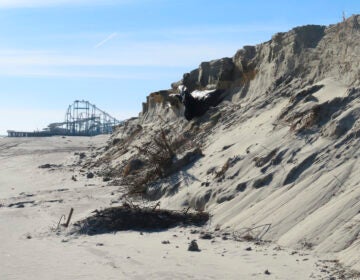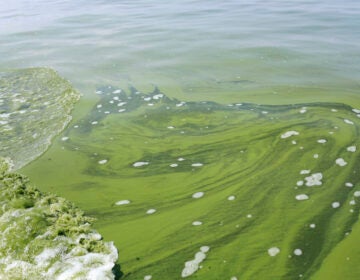N.J. awards $2.5M in grants to combat harmful algal blooms
The grants will fund filtration systems, products to neutralize bloom-causing nutrients, high-tech oxygen bubblers and floating wetland islands.

Algae floats in the water at the Maumee Bay State Park marina in Lake Erie in Oregon, Ohio. (Paul Sancya/AP Photo)
New Jersey has awarded a total of $2.5 million in grants to fund nine local demonstration projects that improve water quality and help prevent, mitigate and manage harmful algal blooms in the state’s waterways, officials announced.
The grants will fund filtration systems, products to neutralize bloom-causing nutrients, high-tech oxygen bubblers and floating wetland islands.
“Identifying new and effective ways to address the growing number of occurrences of harmful algal blooms is a public health and environmental priority for the Murphy Administration,” New Jersey Department of Environmental Protection Commissioner Catherine McCabe said in a statement. “We are eager to evaluate these technologies and strategies, then share what we learn with communities across the state so that we can better prevent and mitigate these events.”
At the Jersey Shore, personnel from the New Jersey Institute of Technology will install and evaluate floating mobile platforms with a micro-nano bubble generator in Monmouth County’s Deal Lake. State officials said the machines pump microscopic bubbles into the water column to improve dissolved oxygen.
Last November, Gov. Phil Murphy announced a $13.5 million fund to combat the blooms that impacted major recreational waterbodies last summer. The grant programs are available to government agencies, county planning departments, health departments, state universities and colleges, and local nonprofit organizations.
In 2019, state officials reported 70 suspected and 39 confirmed harmful algal blooms, an increase over the previous two years, including the popular Lake Hopatcong. At the Jersey Shore, a bacteria, known as “cyanobacteria” or blue-green algae, was found in the 770-acre Manasquan Reservoir.
The bacteria could cause gastroenteritis, skin irritation, and allergic responses, according to the Centers for Disease Control and Prevention.
WHYY is your source for fact-based, in-depth journalism and information. As a nonprofit organization, we rely on financial support from readers like you. Please give today.




